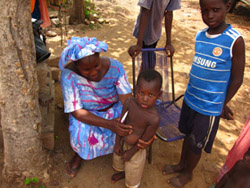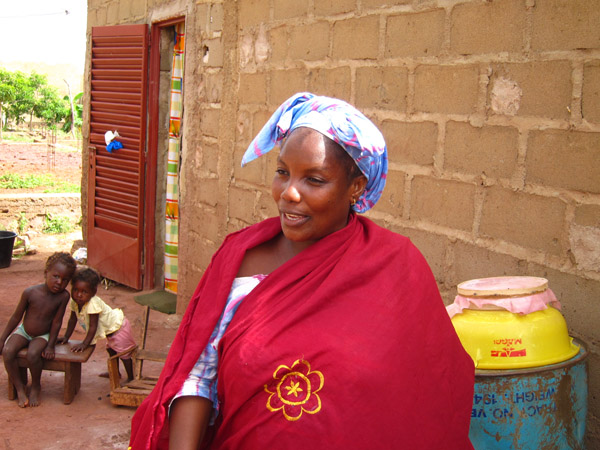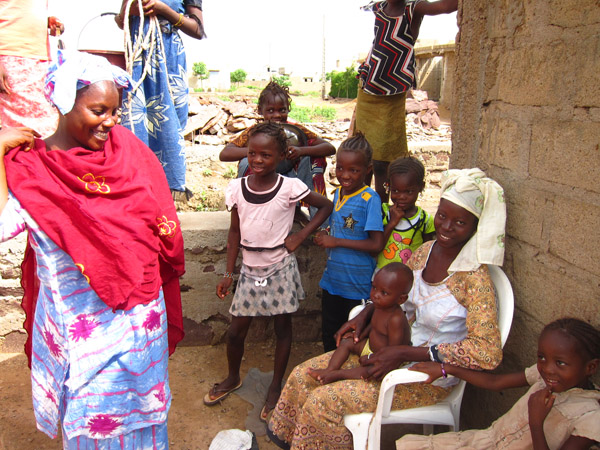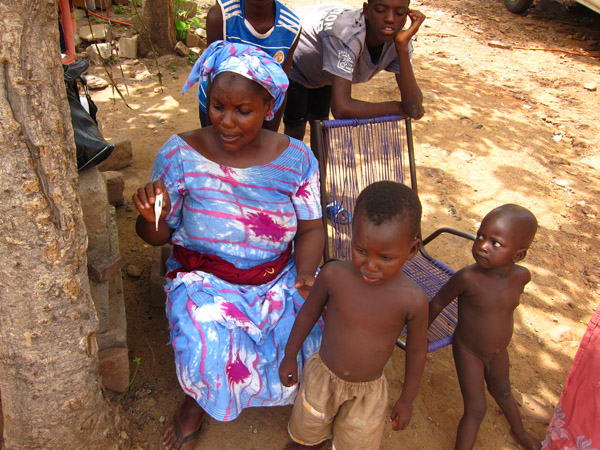
My last post featured Mali Health Organizing Project, an organization I have come to admire because of their approach to public health:
Instead of trying to implement a pre-formulated plan to improve a community’s access to health care, MHOP asks the community what their needs are, and what they consider to be possible solutions. MHOP then works with the community to generate a health care plan from within, one that makes sense to the people that will be using it.
Project Muso, a multifaceted non-profit with a focus on empowering women, has a similar approach. For both organizations, community driven healthcare is keyed by community health workers. In the case of Project Muso, community health workers (CHWs) are local mothers who are rigorously trained, supervised, and supported to extend primary health care into the homes of community members.
The Project Muso Website points out vital components of a CHW’s work:
– Communicate with patients—they understand the community’s values, perspectives, geography, and resources;
– Build trusting relationships that promote lasting behavior change–they live in the communities they serve and can cultivate ongoing relationships with their patients;
– Relieve overburdened clinical staff by taking on tasks of simple diagnosis and treatment, outreach, education, case management, and patient counseling—particularly relevant in a country like Mali that has only one physician for every 13,478 people;
– Ensure early treatment by proactively searching for new malaria cases—crucial since most children killed by malaria die within two days of their first symptom before seeing a doctor;
– Monitor and support treatment adherence, which is crucial to curing malaria infections and preventing drug resistance;
– and, Make a dramatic difference on health outcomes at a much lower cost than traditional clinical care. (More on the Project Muso Website)
During my last trip to Mali, I had a chance to shadow one of Project Muso’s community health workers as she visited families throughout the Yirimadjo neighborhood of Bamako, a routine she performs daily.
Her name is Djeneba. In addition to being a trained health worker, she is also a mother and a respected member of the community in which she lives and works.
As we made our way through the neighborhood, Djeneba was diligent in greeting everyone she encountered. This in itself is nothing unique in Mali, but Djeneba used the greetings to start a conversation. She would ask a mother if her child finished his malaria medication. She would tell a family to make sure they are using their mosquito net every night.
In each instance, I watched families listen intently to Djeneba’s words. It was evident that the message was getting through. In many cases, families thanked Djeneba profusely and asked for further advice. One woman remarked that before Djeneba began her work in the community, her family’s health was in the hands of God alone.
By establishing trust and forming real relationships, Djeneba provides health care as well as meaningful health education. The families then go on to reinforce the message by interacting with other community members, creating a positive feedback loop where the benefits are numerous.
Let’s compare this model with a different approach. Instead of Djeneba interacting with the community directly, reminding families to use bed nets each night, an NGO or the health ministry distributes free nets to the community and provides little if any instruction or reason to use them. As Amber, at the time a 3rd year Peace Corps volunteer, told me, in this case many of the nets will be re-sold and never used.
At one house, Djeneba performed a rapid diagnostic test for Malaria on a boy who had a fever. The test came back negative, but she advised the family that if the fever persisted he should be taken to the Yirimadjo Clinic, itself heavily supported by Project Muso. She also promised to follow up with the family the following day.
Towards the end of Djeneba’s neighborhood tour, we made our way to the clinic. Once a modest structure with little if any modern health equipment, the clinic has expanded into several buildings and now features equipment like an ultrasound machine and facilities like a delivery room.
It was here that I watched Djeneba follow-up with patients she had seen earlier in the day, reminding them about dosing for medication, offering them nutrition advice and telling them what to do if symptoms progressed or worsened.
As I rode back to central Bamako, my taxi driver asked me what I was doing in Yirimadjo. I started to explain Project Muso, but before I could finish, the driver smiled and told me he already knew all about it. Project Muso’s CHWs regularly visit his family. He went on to say that the health of his family has improved and sickness is no longer a source of anxiety and worry.
Recent assessments of Yirimadjo reveal that Project Muso‘s efforts are indeed having an impact. For me, the anecdotal evidence I gathered from shadowing Djeneba was all I needed to endorse this project. If you want to support an organization that is changing how health care is delivered in marginalized communities, head over to the Project Muso website, read up on their work and consider parting with a few dollars. It will be money well spent. I will also be donating all proceeds from merchandise and the ebook until my next blog post.
I want to thank Djeneba for allowing me to observe her as she did her work and Amber who also accompanied me and provided valuable insight with respect to the community and Project Muso itself.





{ 1 trackback }